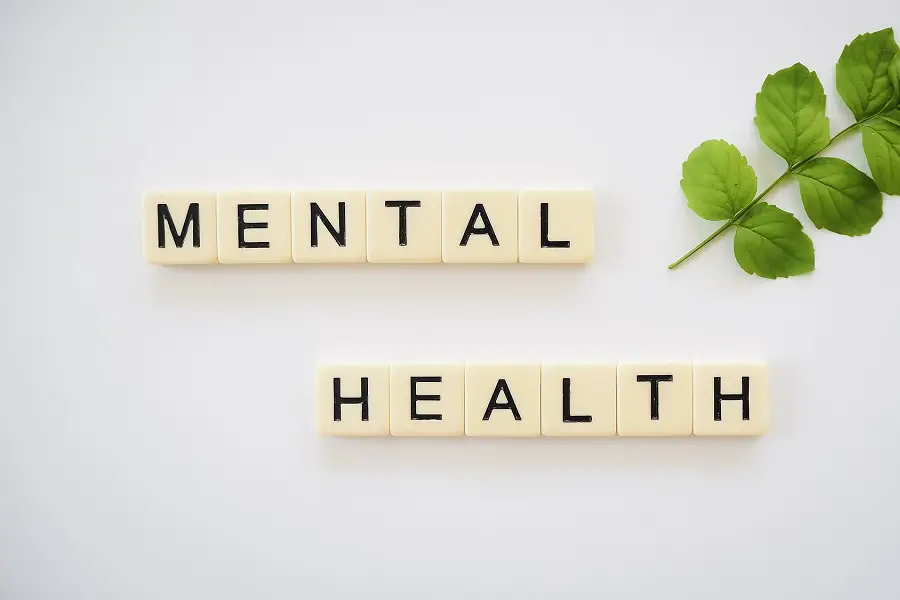Many people with mental health problems such as depression, anxiety, or schizophrenia also struggle with substance abuse (National Institute on Drug Abuse [NIDA], 2020).
It’s a highly debated topic whether substance abuse leads to mental illness or vice versa (Sarvet & Hasin, 2016). Addiction and mental illness are linked, but it’s hard to determine whether one causes the other (Kessler et al., 2011).
Researchers have been trying to find answers for years, but the topic remains a mystery. In this blog post, we’ll explore the relationship between substance abuse and mental illness and the causes that result from it.
Addiction is a chronic disorder
Addiction is not a choice but a chronic disorder that requires long-term treatment (American Society of Addiction Medicine [ASAM], 2019).
Quitting cold turkey is not always the best solution, and relapses are common (NIDA, 2018). Addiction is a disease that affects the brain and manifests in compulsive drug-seeking behavior despite negative consequences (Volkow et al., 2016).
Therefore, treatment plans should address both physical and mental aspects, such as detoxification, therapy, and support groups (NIDA, 2018).
Substance abuse can cause a new onset of a mental illness.
Substance abuse can increase the likelihood of developing mental illness (NIDA, 2020).
An individual who is more susceptible to addiction might have an underlying mental illness that is undiagnosed (Grant et al., 2016).
When they begin to use drugs or alcohol, it can trigger the development of a mental illness that they were already predisposed to, or substance abuse can cause mental illness (NIDA, 2020).
For example, cocaine use can lead to paranoia and anxiety (Araos et al., 2015), and chronic marijuana use has been shown to increase the risk of developing schizophrenia (Di Forti et al., 2019).
Mental illness can lead to substance abuse.
People with mental illnesses such as depression or anxiety might use drugs or alcohol as a way of self-treatment to help them cope with their health conditions (Khantzian, 1997).
Additionally, they may experience feelings of hopelessness and see no other way out than to pursue a life of drug use (NIDA, 2020).
Substance abuse may even further worsen their mental condition, which can lead to a cycle of addiction and mental illness that is hard to resolve.
Genetics plays a role.
Some researchers believe that genetics may be a factor that can help to explain why addiction and mental illness run in families (Bierut et al., 2010).
If one of a person’s parents had schizophrenia, for instance, he or she is more likely to develop the condition themselves (Schizophrenia Working Group of the Psychiatric Genomics Consortium, 2014).
What is important to remember here is that genetics is not the sole cause, so even if a person has family members with addiction or mental illness, one might not necessarily develop them.
Stressful situations.
Stressful situations, such as a death in the family, divorce, or job loss, can lead to mental health conditions such as depression or anxiety (Kendler et al., 2003).
Substance abuse can be a form of self-medication that can lead to addiction if not properly managed (Sinha, 2008).
This is why it’s essential to seek help from a qualified professional if you are experiencing a significant source of stress in your life.
Treating addiction and mental illness.
It’s difficult to treat mental illness and addiction separately because they are interconnected (Torrens et al., 2011).
The treatment options will depend on a range of individual factors, such as what type of addiction a person has, what mental health condition he or she has, or how severe the individual’s symptoms are.
There are a variety of options, including medication-assisted treatment, psychotherapy and support groups.
Substance abuse and mental illness are intertwined, and they can lead to a cycle of addiction and mental instability that can be tough to break.
It’s essential to seek early intervention for both addiction and mental illness since symptoms can spiral out of control quickly. If you are struggling with substance abuse or mental illness, or both, don’t hesitate to seek the help of a professional in the field.
With proper care and guidance, you can overcome addiction and mental illness and lead a fulfilling life. Recovery can be a challenging road, but it is definitely achievable.
References:
- American Society of Addiction Medicine. (2019). Definition of Addiction. https://www.asam.org/Quality-Science/definition-of-addiction
- Araos, P., Pedraz, M., Serrano, A., Lucena, M., Barrios, V., García-Marchena, N., … & Rodríguez de Fonseca, F. (2015). Plasma profile of pro-inflammatory cytokines and chemokines in cocaine users under outpatient treatment: influence of cocaine symptom severity and psychiatric co-morbidity. Addiction Biology, 20(4), 756-772.
- Bierut, L. J., Agrawal, A., & Bucholz, K. K. (2010). A genome-wide association study of alcohol dependence. Proceedings of the National Academy of Sciences, 107(11), 5082-5087.
- Di Forti, M., Quattrone, D., Freeman, T. P., Tripoli, G., Gayer-Anderson, C., Quigley, H., … & La Cascia, C. (2019). The contribution of cannabis use to variation in the incidence of psychotic disorder across Europe (EU-GEI): a multicentre case-control study. The Lancet Psychiatry, 6(5), 427-436.
- Grant, B. F., Saha, T. D., Ruan, W. J., Goldstein, R. B., Chou, S. P., Jung, J., … & Hasin, D. S. (2016). Epidemiology of DSM-5 drug use disorder: results from the National Epidemiologic Survey on Alcohol and Related Conditions–III. JAMA Psychiatry, 73(1), 39-47.
- Kendler, K. S., Karkowski, L. M., & Prescott, C. A. (2003). Causal relationship between stressful life events and the onset of major depression. American Journal of Psychiatry, 156(6), 837-841.
- Kessler, R. C., Ormel, J., Petukhova, M., McLaughlin, K. A., Green, J. G., Russo, L. J., … & Ustün, T. B. (2011). Development of lifetime comorbidity in the World Health Organization world mental health surveys. Archives of General Psychiatry, 68(1), 90-100.
- Khantzian, E. J. (1997). The self-medication hypothesis of substance use disorders: a reconsideration and recent applications. Harvard Review of Psychiatry
Leave Feedback: Was this article helpful?

